By Adelina Gina
Second part
-“I cried for you like dead, I waited for you like alive”-
Memorie.al / Shpëtim Gina, graduated in Journalism at the University of Tirana in 1974, playwright, screenwriter and librettist, at the beginning of the 70s, thanks to his extraordinary talent, with his work, works and creativity, “shocked” the artistic institutions of Tirana, such as; The People’s Theatre, the Opera and Ballet Theatre, the High Institute of Arts and the Albanian Radio-Television. He was one of the most sought-after chiefs and senior leaders of these institutions, where in the period 1971-1974, he left his mark, having collaborated closely with some of the most famous names of that time, such as: Mihallaq Luarasi, Kujtim Spahivogli, Pirro Mani, Mario Ashiku, Zhani Ciko, Nikolla Zoraqi and director Mevlan Shanaj and operator Pali Kuke. But the traces he left in these cultural and artistic institutions were unfortunately lost or dissolved in the dust of time and the official silence of the communist regime?! After in August of 1974, Shpëtim Gina, lost her life in still unexplained circumstances, drowning in two feet of water, in the river Drojë of Mamurras, (where she was conducting the military choir together with other students), two days before , he had put a lightning bolt on the Chief of the General Staff of the Army! Was it really an accidental death, or was Shpëtim Gina eliminated by the State Security?! A question that has not yet received an answer! His sister, Adelina Gina, graduated in journalism in the late 60s, in a book of hers entitled; ‘Where did you take Salvation’, published in the USA where she lives with her family after the 90s, tries to reveal the big truth about her brother!
Continues from last issue
March came, together with Salvation we went to the store to buy gifts for Mother’s Day, March 7 – Teacher’s Day and March 8 – Mother’s Day. When we went, we found a lot of people, once her students, who had come to congratulate her on the holiday. She was happy but looked very tired. I was doing housework, because all the time the burden had fallen on Mira, while Shpetimi sat by his mother’s bed and told her about his plans, about the artists he had made friends with and that he would become famous, everyone would talk for her.
“And obviously for you too,” he added, “it is understood that you are very important, you are my mother.” She listened to him, she never complained about the illness, about the pain, but from a cheerful guy, she had become silent, melancholic, who knows what she was thinking to herself. We stayed two days and returned to Tirana again. Spring had come. The trees on the road had blossomed. There was also a lot of sun. So bright, all excitement, he seemed to encourage them to blossom perhaps prematurely. The fields stretched to gentle hills, behind them the lilac-colored mountains closed the horizon.
Not even a week had passed, when the father informed us that the mother was seriously ill, she had suffered another paralysis, which had taken her other hand and leg. We immediately left for home. On the way, neither one nor the other opened their mouths. When we arrived we found him in bed, propped up with many pillows. Mira and Petriti were young at the head. I have nothing, he said slowly, when I kissed him, it will pass like the first time and he looked at me with those eyes like a dove. I caressed her cheeks, caressed her sick hand, straightened her black hair, she didn’t have a single gray hair, she was forty-six years old, I swallowed my tears.
Salvation had faded. “Laugh a little, she told him, or are you afraid your lip will go crooked.” He smiled at her through tears. Where did he find this strength, to give us courage? Father used to come. “I was tired,” he said of her. In those days, he didn’t put anything in his mouth, his aunt and sister had come. Only when I told him to drink some fruit juice, he accepted, he pretended to drink it, he didn’t want to disappoint me. Shpetimi opened the albums and both of them saw our pictures, each picture was accompanied by comments. I was fixing something, I overheard him asking: “Who do you love the most out of the four of us”? “You,” she told him. “Why”? He asked her.
“That looks like me”, she pronounced. In these moments there was a great closeness between them. I left without feeling. Salvation resembled his mother, only his eyes were green, like his father. His mother was brown. The condition kept getting worse, the doctor gave no hope. Father talked to me and we decided to remove Salvation. We also took Petrit to Berat, to his aunt’s children. That night, apart from us and my aunt, there was also a friend of my mother, an Italian. Mother was leaning on my chest, she moaned all night and kept her eyes closed, when the day dawned the moaning stopped, she opened her eyes. He beckoned me out the window. “Plums,” I said. She shook her head. I will snap a branch. The plum blossoms had bloomed. “Gynah,” she uttered. Tears began to roll down his face.
He looked into my eyes and pronounced my childhood name: “Lina, Lina, Lina” and hung his head on my shoulder. “Calm down,” I said to myself! “Give it to me,” said her friend and laid her on the pillow. “Get out of the room,” she told me. I blindly obeyed. At the door of the room I was mentioned and I said to myself: “Dead”!? This was death.
Father had gone to drink a glass of brandy. He had been up all night. It came at that moment. “It’s over,” said the mother’s friend. Ah! How did I not end up here?, he shouted. “It’s over in Adelina’s arms,” said the aunt, don’t regret it.” “Come on, Mira,” I said. She entered head to me and burned in the oil. We announced the rescue at midnight. He wandered the streets until he found a car and arrived early in the morning. I saw him enter the courtyard alley, but I could not get ahead of him. He entered the room and sat down at his mother’s feet. “What a shame, how young!”. And sobbed with his head in his hands, like a child. “Don’t enter the room! – I told my aunt. Leave him alone with his mother. Later there will be people”. It was March 23, 1972.
The house, the yard were filled with people, many came. Mother was one of the old teachers of the small town and had many acquaintances, former students, colleagues. According to custom, at her bed, placed in the middle of the room, was me, my sister and other close women of the tribe. The room was full of women. At one point, I looked up and three women caught my eye. It was them, the secretary of the party, the director and one of their tools. I remembered them all.
“And you, what do you want here? Run away! You killed my mother; you came to mourn her, after you killed her. Out!” I turned to the trio. They froze; they didn’t know what to do. “Don’t mind her,” said the aunt, “she’s shocked, please.” In a low voice he whispered to me: “Everyone comes to death, no one interferes, and this is the custom.” While I answered in a loud voice: “What if the killer comes, makes the victim cry, is it customary?! You’re gone, sister” and I addressed the trio again: “Run, get out”! They rose. The whisper went out of the room and spread through the house, the street, wherever there were people. I looked at the mother, now she and I were calm. My grandmother was from the city of Berat, the daughter of a priest, who worked in one of the city’s churches. He also had a married sister with three children. In 1944, the husband left Albania, the aunt refused to leave with them.
Thus, he was put on the list of fugitives. The aunt, although she does the separation by court, suffered this all her life. The mother helped them as much as she could, even her daughter stayed with us for four years. In a meeting of the pedagogical council, the mother was one of the best teachers and worked with passion, she was criticized that in the subject of mathematics, instead of developing problems with the students, related to the war in Vietnam, e.g. , how many American planes, crashed, etc., gives problems with flowers, bunnies. The mother defended herself, saying they were dealing with small children.
Meanwhile, one of the trio, her name was Luciana and she had crooked legs, she was young, very careerist, wanting to burden her mother even more, because that’s what her party taught her, asked her: “Where is my sister’s husband, Tell us about him? Why did he run away? What about the husband’s brothers, why were they in prison, for politics?! A meeting that continued for hours. That night, she came home much shaken. The feeling of persecution began to appear. “Don’t listen to us, he said, check the house”! He went to his sister in Berat. She had hidden an icon behind a painting. “Take it off, the mother told him, they will come to check and if they find it, prison awaits you”! The father tried hard to calm him down. “Don’t, my Fotini, – he told him, – you are taking all of us by the neck, calm down!”. In this state of shock, he suffered a cerebral embolism.
Revolutionary vigilance appeared again in the cemetery. Before they buried him, someone had to give a speech. Luciana and the party’s organization solved the problem, they made a child speak, who didn’t understand what he said, and they choked him with tears and repeated and repeated: “Teacher, teacher”! In the mother’s bed, Shpetimi slept that night, while I lay in a room with Mira and Titi. All four of us fell asleep. In the morning, Salvation said: “When I fall asleep, I seem to die and when I wake up, I seem to rise from death.” I thanked God for the peace he gave us; they say her spirit was with us that night. All those days, there was a moment before my eyes, mother raised her hand to make the cross, her hand trembled, and she did not obey. “I’ll do it,” said the sister, and made the cross.
***
We both returned to Tirana. It was a rainy April. I was dressed all in black, with a white overcoat on top. During this time, I and Shpetim became more connected to each other. We were together everywhere, in the restaurant, library, street, etc. Although we talked little about mother, she was always with us. Spetimi had a habit of showing me the creations, before writing them down, while walking. It seems that he developed the subject better. On one such evening, he told me that he had decided to write a play. “I have it all in my head, I have to sit down and write it.
Now listen to me, if you’re seeing someone, tell me so I don’t talk nonsense. How about I start? The event takes place in Italy. Year 1943. This was the first phrase and continued to show the subject of the drama “Enemies”, which he would later title: “In the middle, is the sea”. He worked every day, for hours, during the time he connected with the actors of the People’s Theatre, he talks with them about the drama, talks about the ideas that it conveys, about the way it should be staged. On one of these days, father came to see us. Salvation went out with him, took him to all the bars.
Somewhere they drink a coffee, somewhere a brandy, in another brandy. Only the father drank, because Shpetimi did not drink. He introduced him to his friends, artists, musicians, painters, actors, etc. The actors respectfully surrounded the father. Before him, Sandër Prosi called it Salvation; the father of the theater. At that time he was twenty-one years old. This attitude affected the father very much. He, being a sensitive type, who is touched and when he reads a patriotic poem, this atmosphere definitely made him happy and moved him. But this exit did not last more than two days. “Now, what kind of son do you have? Here’s your daughter, go out with her. I don’t have time, I have to finish the drama,” he told his father. And so it was.
Throughout the month, he closed and finished it. The drama was given to the artistic council, meanwhile the press announced that in the September season, the troupe of the People’s Theater will stage the drama; “Enemies” of Shpëtim Gina. The play was printed in many copies, one of which Salvation gave me. I had read it leaf by leaf, but not bound. I opened it on the first page. The title “Enemy” and below it was written; “To my mother, the author”. Now I could see his work, his rush. In all that pain, he found solace in drama. He poured himself into it. June came, exam season came. I was worried, that I knew that he was not prepared, that he was taken with the drama. One morning he came and picked me up from the newspaper.
We walked along the boulevard. “Tell me a little about those writers of socialist realism, when they were born, when they will die and what they wrote”, said Shpëtimi. All the way I was just explaining, when we arrived at the university building, he said to me: “I’m leaving because I’m going to the temple myself”. I returned to the editorial office, I waited worriedly.
After lunch, the photojournalist handed me a picture. “It’s interesting; we will publish it in this issue, only the bases need to be retouched a little”. To my surprise, it was Shpetimi who was talking all hands and gestures, in the exam. We met at lunch, in the restaurant. He was happy. “Do you know how it happened?, – he said. Teacher Dalan Shapllo, when I went to pick up my aunt, he said to me: Leave the aunt, Shpëtim, and let’s talk about the problems of literature. We are colleagues. And when those from your newspaper came, for get some brilliant student, Dalani said of me. If he had asked me about those writers, I would have failed for sure”!
At that time, he did not receive his salary at the Opera Theater, because one day a music director had told him, at the request of a party member, that at that time he had written some weak plays, to write a ballet libretto for a play , was titled “The House on the Boulevard.” Salvation was heated. “Tell him that art is not maternity and that I can’t write about all those women who get pregnant.” I don’t know how she told him, but I know that Salvation cut his salary.
After many efforts, Agron Alija and Nikolla Zoraqi arranged the salary job again and he continued to work on the librettos. Nikola was a very slow man, in speech and actions. He knew how to listen when you talked. Shpetimi often sat with him, in the cafe of the Palace of Culture, and they discussed the opera “Enemies” together. Nikola, who was calm in nature, came out of himself and followed the thoughts of Shpëtimit like a rushed movie.
Nikola told me: “He didn’t study music, but he intuitively catches the mistakes. He tells me: you’re good here, or you’re not good! It’s about the technical side of my work. He has a great ear for music, he’s a born artist. I enjoy when he sits next to me and I play the piano. What he says, I translate into sound. I have always found it annoying to work when someone is sitting next to me, and his presence is like a background sound. I love this boy! In this great talent, there is also a great man. It rarely happens that the two coincide! Do you know what he did to me in Saranda?! You know, we stayed together for a week. Our room fell from the sea. He got up early in the morning, went out on the balcony and wrote.
When I woke up, he would read me parts of the opera libretto and suggest, here we need some music, like this wind that is creasing the waves. Okay, I told him, but I still haven’t had coffee, I haven’t eaten breakfast. I am a hard-working man, but he was better than me. One day I told him, we have come to look at the sea, eat fresh fish and relax, then return to Tirana and finish the opera. ‘I have a lot of things to do and I don’t have time, I’m in a hurry’. He said it so seriously that I was silent. And it was only twenty-one. What I have left as a hostage is that he never agreed to rent it, even for a coffee. He himself liked to rent me. And I accepted, thinking that I would make him accept, but that was impossible.”
That’s what he really was. At my aunt’s place, where we stayed, we used to eat outside and he never refused to drink even a glass of milk, no matter how much his grandmother begged him. But I accepted everything they offered me; I even talked to them about this. That aunt and grandmother loved him very much. One night, I was somewhere with service, he came back late. He knocked on the door slowly and waited, no sound, all the lights were out. Backfired. In order not to wake him, he spent the night on the edge of Lana. When my aunt found out, she was scandalized. If it were me, I would probably wake up the neighborhood too, if necessary.
Work began in the theater, the roles were assigned. Director Mihallaq Luarasi, who undertook the staging of the drama, was optimistic. The director of the theater, Bardhyl Kosova, an elegant man with black hair, always dressed very cleanly, loved and appreciated Shpëti.
“I have never thought, what is pure and noble, to be found in a man, and how talented, how much hope he awakened us?” he told about him and laughed. He helped Salvation with all his soul, to plays was staged, he believed in his talent. Actors surrounded him at night, the theater was buzzing. I remember an old, talented actor, Kopi. He always wore a milk-colored jacket and was all gray, his face dries, with a long nose. He used to emphasize every syllable when he spoke, so he made you stop every moment when we were walking. “I don’t come when you’re with him, I told Spetimi. He died with those stops of his.”
He was laughing. “Yes, I am studying him, which role he will take in the drama” This was true, but there was another reason. Kopi used to say: “Shpe – ti – mi, e – ar – dhmja e ar – ti, ge – ni”. Sphetimi was pleased. He was young. “You listen, he told me, only you don’t praise me”. At this time, in the theater, everyone talked both the talented and those who were untalented. There came a moment when these latter were talking more and the fact was that not only were they more in number, but they listened more long, it was the time of the mediocre.
There was even one with the title; “People’s Artist” and with the function of party secretary, who called out that a pacifist drama was being staged, the party line was being broken. And he took these thoughts to the party committee, up to the Central Committee of the PPSh. One day came, they didn’t say anything to Salvation, and they gathered the artistic council. A well-known writer also went there and they removed the drama. Director Mihallaq Luarasi started working with a foreign drama, “Orpheus descends into hell”. One day at the steps of the Palace of Culture, I was with Shpeti, we met Mihallaq. “Leave the drama”?, Shpetimi asked.
The other one didn’t answer, meanwhile Salvation had a piece of rubber band in his hand and was moving it. “Good luck” and off we went. “Why did you behave so gently, why didn’t you get angry”?!, I told him indignantly. “What can I tell him, he is like this piece of rubber band, others stretch and shrink it, and it’s a pity?” Shpetimi was upset that even in the Opera Theater; they banned the opera “The Enemies”. The composer with the music of the drama “Enemies” staged the opera “Commissioner”.
Why did they stop the drama, what did it have? The drama “Enemies” stands apart in the creativity of the 70s-80s, it has nothing to do with socialist realism. To find any typological closeness, you have to move to another territory, mainly that of expressionism. It is strange that Albanian literature, until this time, does not even have a point of approach to this current and it is known that Shpëtimi did not know this current, and that at that time writing an expressionist work was not only not easy, but considered even, as a criminal offense from the dictatorship.
It is a natural reaction of the artist’s soul, before the horrors and absurdity of the totalitarian reality that was hateful and repugnant to Salvation. His drama, with surprising courage, questions some of the official dogmas and is permeated by the note of protest, against the arrogance of the dictatorship. The drama is full of tension, pain, pity for human suffering from state violence. The source of enmity is not ethnic differences, peoples want understanding relations between them. The source of the fierce match is not even the classes, because they can be agreed. The line of continued enmity runs through the border where good meets ethical evil, humanity meets inhumanity.
Salvation foreshadowed and allegorically expressed that tragic tension, which erupted during the 70s, in the hallucinatory plenums IV, V, VI and VII. This was the reason that the drama was banned from above. His guiding principle was: “The artist obeys only the demands of his inner voice and despises official dogmas and schemes”. So the drama “Enemies”; being the first and only case in Albanian literature, of a work of expressionism, it created not only a lot of noise, but also fame for the author. It was December, the years would soon change. Salvation had gone home, to the father. /Memorie.al
The next issue follows




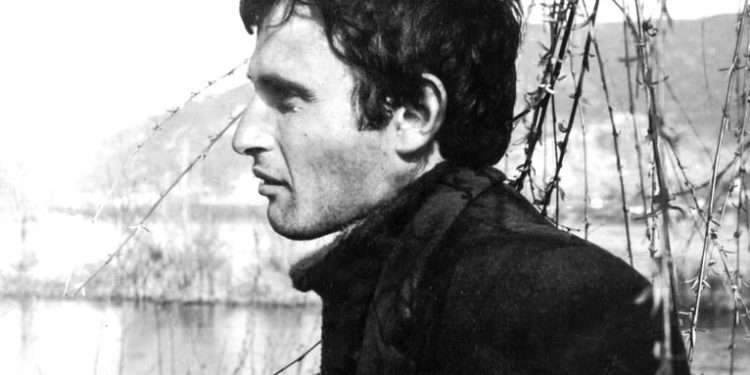
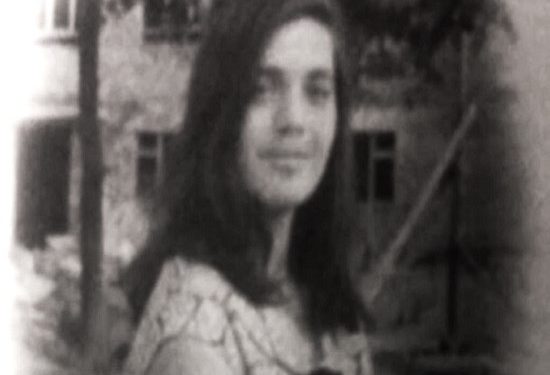
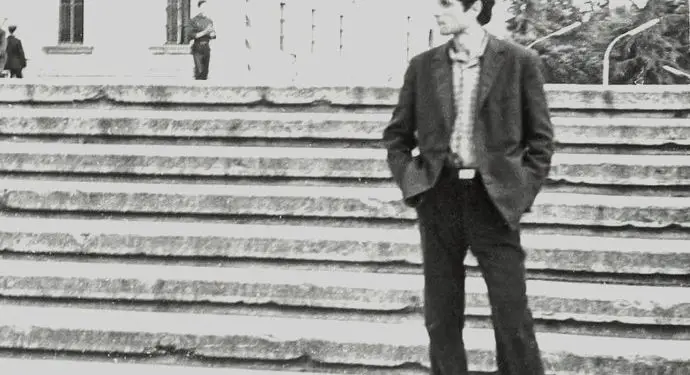

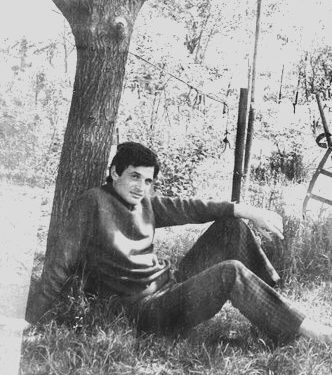


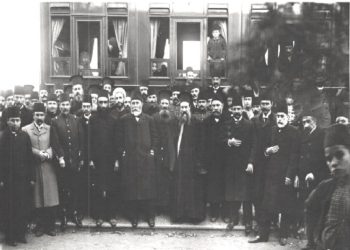
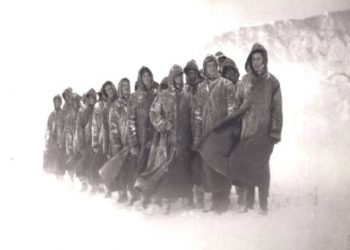

![“When the party secretary told me: ‘Why are you going to the city? Your comrades are harvesting wheat in the [voluntary] action, where the Party and Comrade Enver call them, while you wander about; they are fighting in Vietnam,’ I…”/ Reflections of the writer from Vlora.](https://memorie.al/wp-content/uploads/2025/06/admin-ajax-4-350x250.jpg)


